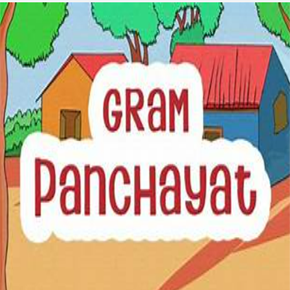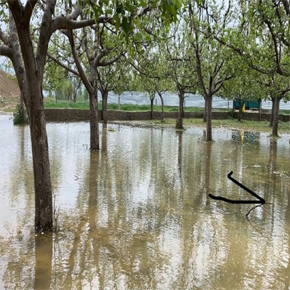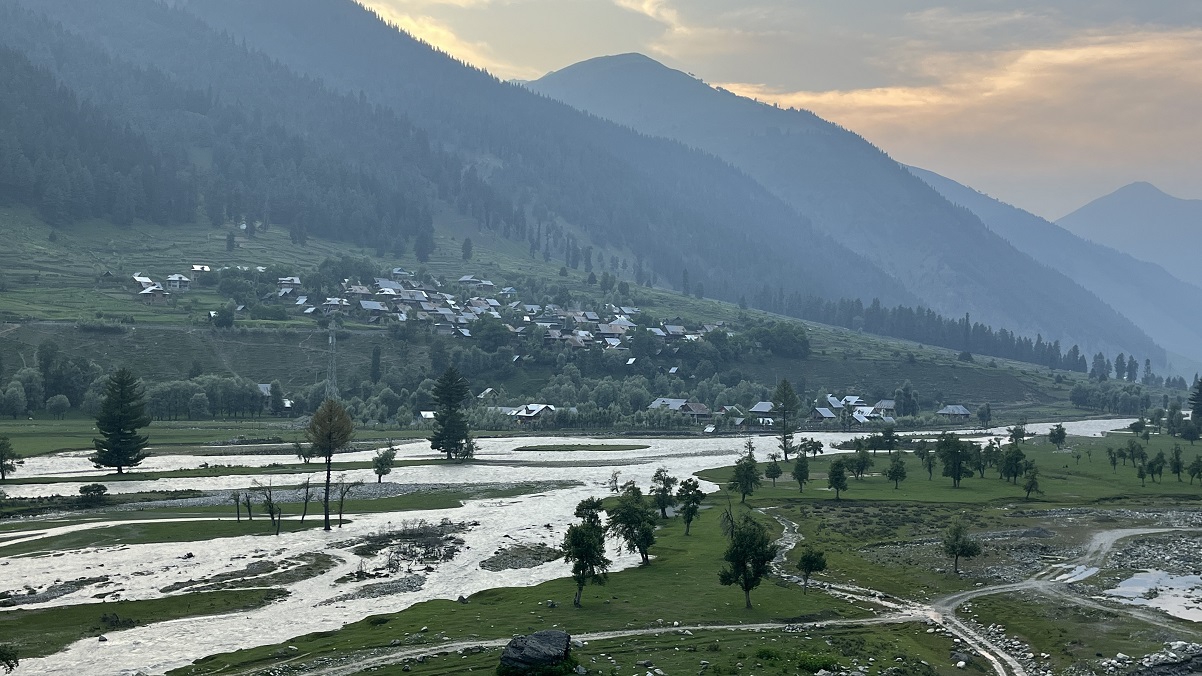Issuing Eviction Notices to Forest Dwellers Violates Apex Court Ruling.
Grazing is a Community Forest Right of all the people living near forest areas. This should be respected by Forest Department and subordinate Judiciary
The Scheduled Tribes and Other Traditional Forest Dwellers (Recognition Of Forest Rights) Act, 2006 also known as Forest Rights Act 2006 or FRA is a historical legislation that recognises the rights of forest dwelling communities across India whether they belong to Scheduled Tribe or Other Traditional Forest Dweller (OTFD) community. The FRA encompasses Rights of Self-cultivation and habitation which are usually regarded as Individual Rights and Community Rights as grazing, fishing and access to water bodies in forests. In addition, the access to the traditional seasonal resource for nomadic and pastoral communities is part of the community forest right (CFR) and community forest resource right (CFRR). The pastoralist communities like Chopans, Gujjars and Bakerwals of J&K give them the right to use the forest land for their livelihood in a sustainable way without causing any harm to the environment and forests. Grazing of cattle and sheep is a part of this right.
Unfortunately, for many years, some local people with vested interest claim rights over the pastureland and demand ransom from grazing communities at high altitudes of J&K. Many such cases have been reported in J&K’s Kishtwar and Budgam in the last few months.
The Forest Rights Act (FRA) further enjoins upon the Gram Sabha and rights holders the responsibility of conservation and protection of biodiversity, wildlife, forests, adjoining catchment areas, water sources and other ecologically sensitive areas as well as to stop any destructive practices affecting these resources. The Gram Sabha is an empowered institution under the FRA. The local tribal population and other traditional forest dwellers (non STs living near forests) have a decisive say in the determination of allocation of forest land and pasture land for grazing purpose as part of their community forest right.
The Forest Rights Act 2006 (FRA) acknowledges the fact that the forest-dwelling Scheduled Tribes and other traditional forest dwellers have been residing in forests for generations but their rights could not be recorded, recognized and accorded to them. Historical injustice has been done to the forest-dwelling Scheduled Tribes and other traditional forest dwellers who are integral to the very survival and sustainability of the forest ecosystem since the colonial period as well as in independent India.
FRA is therefore aimed at addressing the long-standing insecurity of tenure and access rights of forest-dwelling tribes and communities, including those who were forced to relocate their dwellings due to development interventions undertaken by the State. The FRA provides a legal framework for recognition of individual and community forest rights. It also provides an opportunity for democratization of forest management.
Case Study 1: Meelyal Kupwara
Recently, the Forest Department in Kupwara issued an eviction notice to one Abdul Satar Lohar S/O Abdul Gafar Lohar a resident of village Meelyal Tehsil Kralpora District Kupwara. Abdul Satar Lohar belongs to the disadvantaged Lohar community (blacksmith) and has been living in Meelyal, a forest area, for centuries. Abdul Satar Lohar received a notice from the local Block Forest Officer on 20th July 2023 asking him to vacate the forest land under his occupation within ten days. The letter said that the Forest Department would take legal action against him if he failed to do so.
A copy of the served notice has also been sent to the local police station by the concerned officer. As per the documents submitted in various forums by Abdul Sattar Lohar, he is occupying forest land for his survival and grazing purpose and never made any house or commercial complex on it. He has submitted claim form A to the Forest Rights Committee constituted under the Forest Rights Act 2006. The forest department officials say that said claim was rejected, but the aggrieved says that he hasn’t received any formal order by Sub Division Level forest committee (SDLC) or District level committee (DLC). To authenticate his claim, Abdul Satar Lohar has provided a photograph of the old Kotha (Mud / Log hut) to the Forest Rights Committee and Forest Department which has been constructed on the land for ages and the same was being used for grazing purposes by the family. Copy of the same is available with this author as well.
Can Forest Deptt issue Eviction Notice?
In several write-ups of mine, I have made it clear that the Forest Department can’t issue notices for the vacation of the forest land to people as the same has been stayed by the Apex Court in the case of Wildlife One v/s Union of India case.
Until the process of deciding the claims under the FRA are completed by the authorities, eviction notices can’t be issued at all.
Action against any claimant of the Forest Rights Act whose forest rights claim is under consideration by any authority (Gram Sabha/ SDLC/ DLC) will be considered a violation and liable for penal action under Section 7 of the Act and other Indian Penal Code. Even if the claims have not been filed due to lack of awareness about Forest Rights Act -FRA , the same can be filed at any point of time. Pertinently there is no given time frame for filing claims under the FRA.
Preamble of FRA
Before initiating any action against forest dwellers, the Forest Officials must go through the preamble of FRA. It reads:
“An Act to recognize and vest the forest rights and occupation in forest land in forest dwelling Scheduled Tribes and Other Traditional Forest Dwellers who have been residing in such forests for generations but whose rights could not be recorded and whereas the forest rights on ancestral lands and their habitat were not adequately recognized in the consolidation of State forest during the colonial period as in independent India, resulting in historical injustice to the forest dwelling Scheduled Tribes and Other Traditional Forest Dwellers”
Case Study 2: Chaskani Naad meadow
Chairman District Development Council Budgam Mr Nazir Ahmad Khan recently wrote a letter to J&K’s Lt Governor Mr Manoj Sinha asking him to constitute a high level inquiry team of Forest , Tribal Affairs and Revenue Department to look into alleged encroachment of Chaskani Naad highland pastureland in Doodh Ganga forest range of Budgam district. He suggested that a Maha Gram Sabha of several villages be held so that pastureland is distributed among different pastoralist communities for grazing purposes.
DDC Chairman Budgam sent this communication to LG Mr Manoj Sinha on Thursday July 20th 2023 after a delegation of people mostly from the Scheduled Tribe (ST) , Gujjar community of Branwar, Jabbad , Neegu villages in Budgam District apprised him regarding denial of the grazing rights to them in pasture land of Chaskani Naad by some local influential families.
The Chaskani Nad pastureland is located an altitude of 4000 meters in Doodh Ganga Range of Pir Panjal Forest Division Budgam bordering Poonch district near Choti Gali mountain pass.
The locals of Branwar and adjoining villages told DDC Chairman that 5 to 6 local influential families have allegedly occupied the land to get ransom from grazers and this has been continuing since many years and now these families want to get benefits of FRA as well while as local grazers are deprived of the grazing rights and are asked to vacate the area.
Infact, the local court of Sub Judge Chadoora on July 22nd 2023 ordered that defendants (claimants of the grazing rights) have no right to interfere into the utilization of the suit property but the order never said that they can’t graze the animals in the area. The order has also said that those who have documentary evidence to prove the grazing land belongs to them can use it. The biggest document to prove this can only be provided by the Gram Sabha and the DDC Chairman Budgam has already urged authorities to hold the same. Infact, the Chairman is empowered to order for holding the Gram Sabha in the villages soon.
Conclusion
The intent of FRA legislation enacted by the Parliament of India in 2006 is to address the long-standing issue of tenurial security of the forest-dwelling Scheduled Tribes and Other Traditional Forest Dwellers who have been residing or depending on forests & forest land for their survival. Though this law came into force on 31st December 2007, in J&K this law was rolled out with effect from Oct 31st 2019 after article 370 got abrogated. Even after more than 4 years of its enforcement in J&K , the Forest Department officials are still unaware of the provisions of this law. It is better that the Govt makes Tribal Affairs Department as the nodal agency for FRA in J&K. Even at the national level Tribal Affairs Ministry looks after implementation of this law and in other states respective Tribal Welfare Department has been given this work, one fails to understand why Forest Department was made the nodal agency for FRA. Preventing forest dwelling communities from using forest land goes against the Supreme Court ruling in the matter of Wildlife One v/s Union of India.

























































































